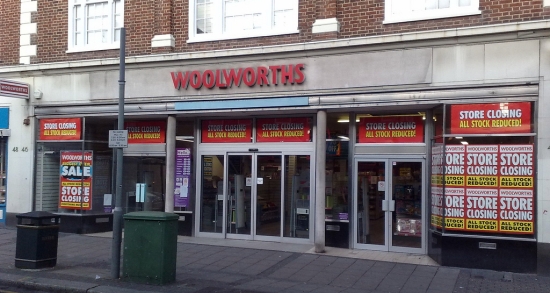This time five years ago, the retail industry in the UK was shaken by the onslaught of Britain’s longest ever recession. One of the earliest casualties, still regarded as one of the most shocking administrations of recent years, was Woolworths, with the once hugely popular brand forced to exit high street trading for good amidst plunging profits and an ever declining rate of consumer demand.

Although the high street is still struggling to recover from the financial crisis, there are signs that consumer demand is once again picking up, even in one of the most badly affected regions of the country – the North East.
When Woolworths closed the North East lost 21 stores and more than 700 jobs, with the result on both high street vacancy rates and unemployment figures correspondingly bleak.
Fortunately, it seems that the vast majority of the commercial properties left empty after Woolworths’ demise have now been re-let and have even managed to contribute towards town centres in the region inching towards prosperity once again.
Gateshead based retail consultancy firm CannyInsights.com has discovered that the vacant sites, generally located in prime spots on the high street, have played a huge role in allowing a new wave of high street staples to expand and capitalise on a high consumer demand for affordability.
For the most part, the chains which have moved in on former Woolworths stores lean heavily towards bargain retailing, with Poundland, affordable fashion retailer Twenty One and B&M Bargains now all common fixtures of town centres in the North East.
However, food retailers such as Iceland, the Co-Operative and Tesco have also snapped up available properties where possible, with the latter taking the opportunity to expand its convenience store network throughout the region.
CannyInsights.com retail consultant Graham Soult believes there may be a silver lining to the dark cloud cast by the closure of Woolworths.
He says; “When the last Woolworths stores were shuttered on January 6th, 2009, the chain’s closure left hundreds of towns across the UK without one of their most important and long-established retailers.
“At the same time, however, it has provided a unique opportunity for successful and expanding variety chains like Poundland, B&M and Discount UK to ramp up their rate of growth, snapping up what were, in many cases, great locations in busy high streets, shopping centres or retail parks.
“Operators of small supermarkets and convenience stores like Iceland, Heron Foods and Tesco have also taken advantage of many of Woolworths’ best sites to grow their presence on high streets, while Store Twenty One and M&Co have targeted smaller towns with their affordable fashion and homeware offer.”
Even though Woolworths is greatly missed, its demise gave many smaller businesses the opportunity to expand their high street presence. And with consumers still keen to save money by shopping with discount brands, perhaps these newer chains will be able to band together and form a stable core from which the high street can recover in earnest.
Do you see the rise of a number of discount brands as a positive, or would you prefer to see Woolworths back on the high street?
Previous Post
Nigeria tops African Office Price League